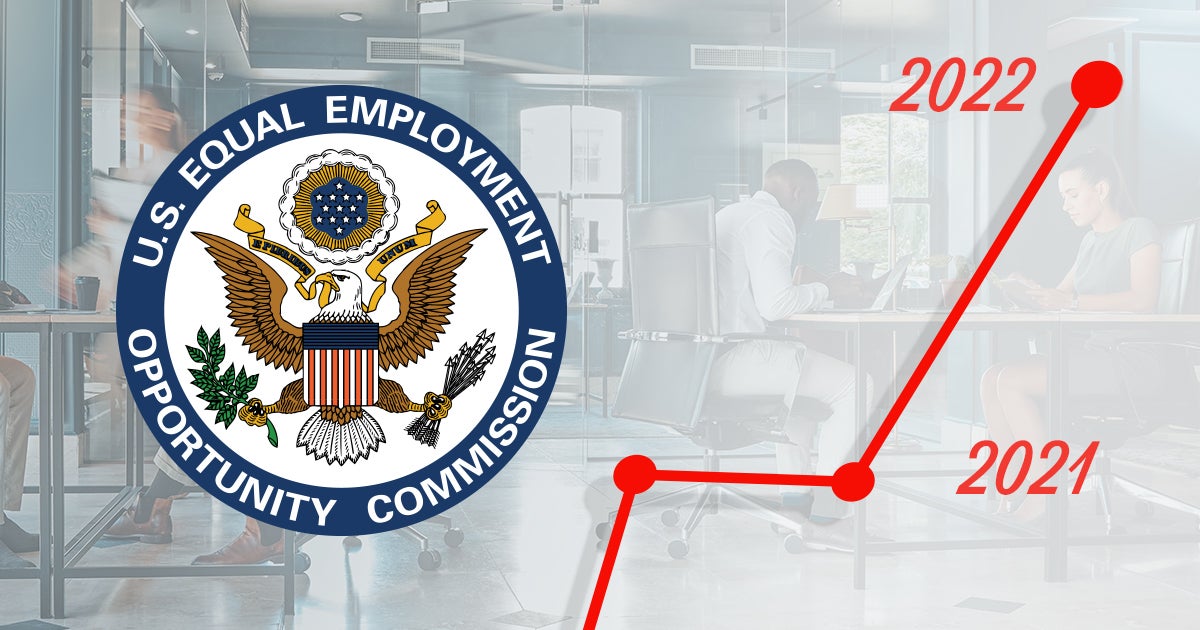
by Jorge Gomez, Layton Brown and Moriah Lawrence • 5 min read
Religious discrimination in the workplace is at an all-time high. According to a report published by the Equal Employment Opportunity Commission (EEOC), the number of religious discrimination charges filed by employees is six times higher than in previous years.
This means the landmark Supreme Court victory in our Faithful Carrier case could not come at a more important time.
EEOC data shows a total of 2,111 religious discrimination complaints filed in 2021. In 2022, that number rose to an astounding 13,814! Religious discrimination complains comprise 18.8% of all workplace complaints filed. That means nearly 1 in every 5 claims is being filed because an employee believes their religious rights under federal law are being violated.
What caused the sharp rise in 2022? The EEOC explained that “there was a significant increase in vaccine-related charges filed on the basis of religion.” There may be other causes contributing to this jump, but no doubt the driving factor is the failure of employers to provide reasonable accommodations for employees who sincerely needed a religious accommodation related to the COVID-19 vaccine.
In 2021, employers began requiring the COVID-19 vaccine as a prerequisite for returning to work. Many employers took drastic measures to ensure compliance, requiring vaccination even for employees who worked remotely or who had natural immunity. Some employers implemented double standards, allowing exceptions to the mandate in some contexts, but not when requested for religious reasons. Complaints of religious discrimination often rose from such double standards or the failure of employers to consider whether an employee could be accommodated, such as through remote work.
Employers should not be given free license to discriminate against their employees on the basis of religion. Whether due to vaccine mandates or other forms of religious intolerance, too many employees have been forced to choose between losing their jobs or abandoning their convictions.
But there is good news thanks to the Supreme Court win for Faithful Carrier Gerald Groff. There’s tremendous hope that religious accommodation in the workplace is about to change for the better.
The Faithful Carrier decision will have far-reaching implications and impact employees seeking religious accommodations in both government and private employers. It is certainly a sigh of relief for the nearly 14,000 people who have filed religious discrimination complaints over the last year. Those employees fighting cases at the EEOC now have a precedent-setting ruling in their hand that can help them succeed in seeking a religious accommodation.
The Supreme Court set a new standard favoring religious accommodation at work. A company cannot say they will not accommodate an employee because of a minor or trivial inconvenience. The bar is now much higher for employers to deny a religious accommodation. They will have to prove that accommodating their employees would “result in substantial increased costs.”
As our legal experts previously explained, this is a wake-up call for the human resources departments inside “woke” corporations. Countless religious Americans have faced discrimination on the job because their employer tries to force them to celebrate and endorse messages that conflict with their deeply held beliefs. Now, companies and employers that pushed religious people into the shadows will have to update their policies, manuals and practices. They will have to take concrete steps because the Supreme Court made clear that religious accommodation is not a suggestion. It’s an obligation under the law.
First Liberty will continue defending working Americans and business owners. Forcing them to choose between their job and their sincere religious beliefs makes a mockery of our laws that protect against religious discrimination at work. It’s wrong and illegal. People of faith have a right to live, work and do business in a manner that’s consistent with their convictions.
Defending religious liberty in the marketplace is critical, especially as corporate America appears to become more hostile toward religious practices. But fighting these cases requires tremendous human and financial resources. Major corporations have millions of dollars at their disposal—and we need your ongoing support to successfully fight them in court. Please give now and join First Liberty in this fight.